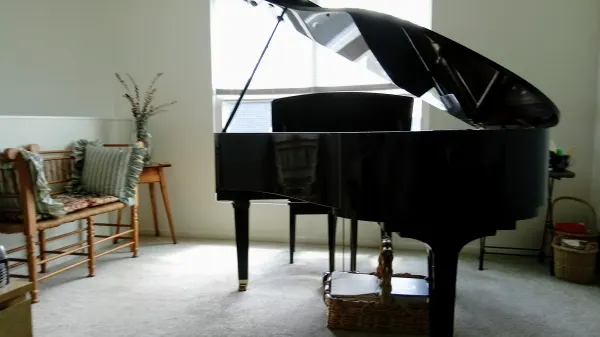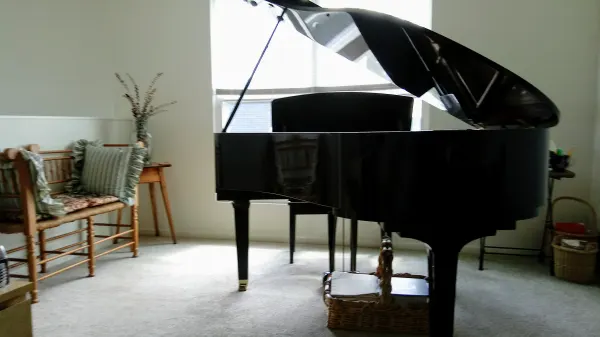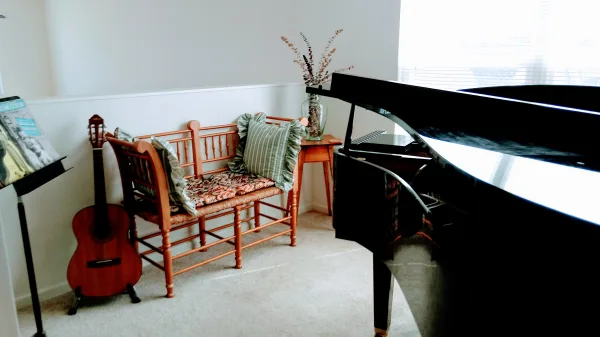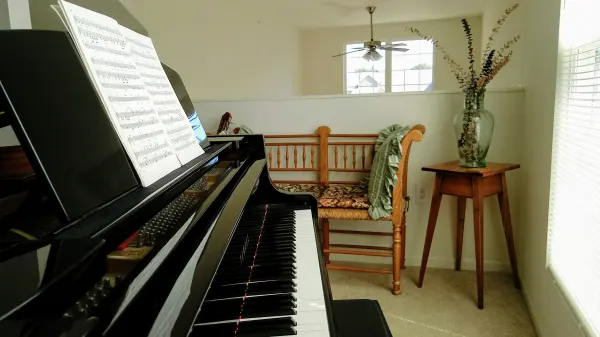Laury Tatz Herzlin
About
I have been teaching voice and acting for over 30 years. My technique, although based in classical training, can be applied to all kinds of singing. I deal with the student as a complete performer and have specialized in being able to choose the most suitable audition material that fits each individual. My students range in age from 7 to 77. Some students are preparing for professional careers, while others are returning to singing. And some students just want to see what studying voice will do for them. But all of them have one thing in common: they love to sing. I have many years of experience preparing students for NYSSMA auditions (with consistently perfect or near perfect scores), as well as college, community theatre and even Broadway auditions. Because of my own extensive background as a professional performer, producer, and director, I approach singing and acting from both sides. One unique aspect of my training, however, involves vocal therapy. I can immediately diagnose vocal inflammation (or worse) and take precautionary measures. The health of the voice is a primary concern in my teaching. One need only look at how many singers must cancel performances or tour dates, due to damage to their vocal cords. The measure of success in how I teach, however, can often be found after only one lesson. That is, students routinely find they can immediately improve their range, after I give them the first few basics of this technique. It is a clear, sensible and accessible approach.
It is incredibly gratifying to see students of every age grow and progress, using all the tools I've developed through my own experience. Singing allows students of ALL levels, to find expression and meaning outside of themselves.
Highlights
Photos and videos




Reviews
Erin R.
Jackie D.
June D.
Anthony N.
Jonny Q.
Ikuko
Frequently asked questions
What is your typical process for working with a new student?
When I take on a new student, the first lesson is what I consider a "consultation." I always tell the student to set aside at least 90 minutes for this lesson. Although it goes much longer than a regular lesson, the cost is the same. There is a tremendous amount that we will accomplish in this consult, though. I will tell the student to bring music and/or monologues that they have performed, or are very comfortable with. No matter how experienced the students are, they are always nervous. So, my first job is to get past those nerves. I ask questions. I'm trying to get a sense of who this person is - what their experience and training has been, and what are they looking to achieve. As they start talking about themselves, they begin to relax. I'm also listening to their speaking voice, which will give me the first indication of any possible damage to their voice (inflammation, soft nodules.. hopefully nothing worse!) Then I'll explain some of the basics of my technique (voice and/or acting). Finally, I'll ask the student to sing, (or perform a monologue or scene, if it's an acting student.) It's best if we can run through several pieces. I'm diagnosing as I'm listening, trying to hone in on the primary issues - what works and what NEEDS work. For example, some students cannot sustain phrases, or lack a vibrato (support problem). Although most students ultimately need to fully understand and master all aspects of technique, my first task is to focus on the major problem area(s). Then, depending on what that issue is, I may try some preliminary work. I will demonstrate what correct singing sounds like - or give a reading of a monologue, with strong choices. Lastly, I will give some suggestions of repertoire to start with (or roles/plays to look at.) This is a very individualized recommendation, based on what I believe will bring out the most positive elements of this student performer, while also providing some challenges for their problem areas. The most important thing to be accomplished from this consult, is that a relationship begins to form. It is very important that trust can develop, as that is crucial for the student/teacher dynamic. As the teacher, I want to feel invested in the student. Likewise, the student needs to feel motivated, confident, and comfortable enough to make mistakes! And then the work begins.
How did you get started teaching?
When I was a young performer, my voice teacher (who I studied with for over 30 years, until she passed away) used to tell me I should be a teacher as well as a performer. So she would let me watch other lessons, and essentially trained me how to teach. Sometimes she would bring me in to work with the Broadway people, since her specialty was opera. Having the opportunity, at such a young age, to work with established professionals, was incredible training for me. When I stopped performing full time, I finally opened my own studio - confident in my ability to now pass on everything I had learned. It is supremely gratifying to watch students grow and progress, as the technique works its way into the muscle memory. I am constantly reminded of how powerful finding one's voice is.
What advice would you give a student looking to hire a teacher in your area of expertise?
I would advise a potential customer to make sure they feel their lessons and music are being tailored specifically to them. Many teachers have the same approach with everyone - the same exercises, the same music, etc. It's important for students to be treated as individuals, with exercises tailored for their needs and abilities.
One of the things that distinguishes me from other teachers, is that I can (and do) still sing. I can demonstrate everything I expect from my students. This can be very helpful for students who are auditory learners, and have to "imitate" to understand the process. There are some teachers who don't - or can't - sing well enough to be able to demonstrate. They will say it doesn't matter. It does. It's an important tool to have as a teacher. Likewise, just because someone can sing, doesn't mean they can teach and convey technique.
What questions should students think through before talking to teachers about their needs?
There are some basic issues, such as what one's goals are (keeping in mind that this could change), how flexible does your schedule need to be, what kind of budget can you handle, how important is having a teacher that plays piano, and what kinds of cancellation and payment policies will you be comfortable with. Also, some teachers do not have recitals with their students, since that can often become the focus of too many lessons rather than concentrating on technical work. So, decide how important a recital is to you. I will do recitals, but not every year. I have found that giving Master Classes with my students is much more valuable an experience, however.